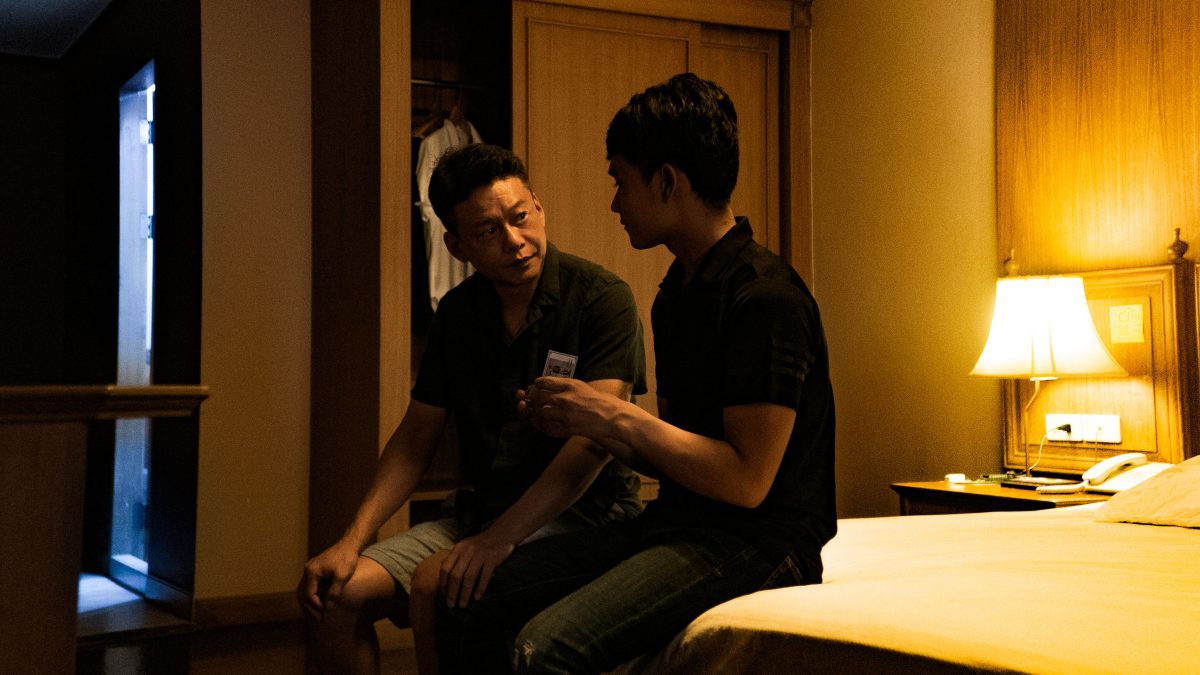
Tsai Ming-liang exists in a curious position within the cinephile consciousness. One of the greatest Taiwanese directors and a foremost practitioner of slow cinema, his films share distinctive attributes — extended static long takes, the frequent presence of rain or water flooding, a patient eye trained on a decaying ultramodern Taipei — that have become so ingrained that the fixation on them can obscure his other interests. While some of his films have been hits on the international scene (particularly 2003’s Goodbye, Dragon Inn), many others are underseen, lost in the vagaries of poor-quality DVDs and ultra-limited distribution. Viewers often favor his aesthetic unity over his films’ narrative unity. For Tsai is one of the most teleological of directors, presenting a film-by-film procession focused upon his muse Lee Kang-sheng, who has been in all his features since his 1991 debut Rebels of the Neon God. That cinematic relationship finds fascinating new turns in Tsai’s latest movie, Days.

Understanding Lee’s role is crucial, and not just because his distinctive, halting manner of movement and speaking sets a template for all of Tsai’s actors. Tsai is openly gay, and the backbone of his films is a sort of unrequited longing for Lee, who is straight but often plays queer characters. Their collaborations are tortured by this relationship, resulting in narratives of outsiders longing for some sense of meaning and companionship in a world that is changing before their eyes. (The title of 2006’s I Don’t Want to Sleep Alone makes this explicit.) Crucial to this is presence of Lee, as well as other recurring actors like Chen Shiang-chyi, Miao Tien, and Yang Kuei-mei. He plays more or less the same character across these films, initially called Xiaokang, but eventually just Kang (xiao is Chinese for “small”).
While viewing all Tsai’s work as a single continuous narrative isn’t strictly accurate, it does very much feel like his oeuvre was leading directly to 2013’s Stray Dogs, especially its tour-de-force ending. It’s no surprise that he announced afterward that he would no longer make fiction features. While he has continued to make short and mid-length works in fiction, documentary, and even gallery settings, he kept that promise until Days, which seems to herald an exciting new chapter in his career.

One of Tsai’s most stripped down, direct, and moving works, Days was conceived under unusual circumstances which began several years ago. Lee was experiencing severe neck pain (oddly reflective of Xiaokang’s affliction in 1997’s The River), and Tsai journeyed with him to film his intense acupuncture treatments. At the same time Tsai met Anong Houngheuangsy, a Laotian immigrant in Bangkok, and began filming him as he went about his day, especially as he cooked. From this came Days, which crosscuts between these two strands for its first half. Despite being shot without any specific concept in mind, the footage is as brilliant as any of Tsai’s other films, patiently watching Lee and Anong amid their quotidian business. There is some stylistic variation here, including a handheld-shot scene of Lee wandering the crowded streets of Taipei, but the camera is mostly motionless. It captures the reflection of the sunset on a glass building as a cat slinks across the interior, or contrasts the aging Lee, all aches and weathered features, with the youthful Anong, as magnetic and attractive as Lee was in his early collaborations with Tsai.
This conceit then suddenly pivots at the halfway mark when Kang and Anong meet in a hotel for an erotic massage. The effect is stark and entrancing, seeing these men locked in such intimacy (whether transactional or not) over a period about half an hour, conveyed in around five shots. The summative effect of Days, especially its long, fading conclusion, which sees its characters resume their day-to-day lives, is as melancholic and potent as in Tsai’s other films. But here there is something new: an element of fulfillment, a belief in deep, life-changing connection — even if it is only for a single night.
Days opens in select theaters August 13.
0 Commentaires